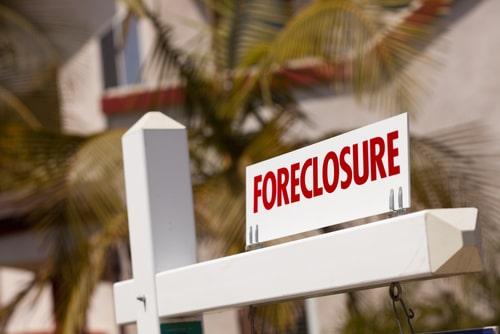1512 Artaius Parkway, Suite 300,
Libertyville, IL 60048
Call for a FREE Phone Consultation
847-549-0000
Video Consultations Also Available
 Spanish
SpanishServing Clients Across 7 Illinois Locations
UPDATE: Understanding a Consent Foreclosure in Illinois
 Originally published: July 19, 2019 -- Updated: November 8, 2021
Originally published: July 19, 2019 -- Updated: November 8, 2021
UPDATE: A consent foreclosure, as described below, may be a beneficial way for a person to relinquish ownership of their home and avoid a deficiency judgment. However, homeowners who are considering a consent foreclosure should be sure to understand how this will affect their credit. The completion of a foreclosure will be included in a person’s credit report, which could affect their ability to secure a mortgage in the future. If this will be a concern, a homeowner may need to determine whether completing a short sale or using a deed in lieu of foreclosure will be a more beneficial option.
Homeowners should also understand how junior liens such as a second mortgage or home equity line of credit may affect their ability to complete a consent foreclosure. A consent foreclosure will remove all liens from the title of the home, and a mortgage lender will waive their right to pursue a deficiency judgment to collect any additional amounts owed on a mortgage. All lenders who have an interest in the property must consent to this type of foreclosure. Because junior mortgage lenders may not be able to recover what is owed, they may object to a consent foreclosure. If objections prevent a homeowner from completing a consent foreclosure, they may need to consider other options. In some cases, a judicial foreclosure may be completed.
If you are facing the threat of foreclosure, Newland & Newland, LLP can help you determine your best options for resolving these issues, protecting your credit, and eliminating debts. To get legal help with your case, contact our Waukegan foreclosure defense attorneys at 847-549-0000 and set up a free consultation today.
If you are seriously behind on your mortgage payments, you are in danger of foreclosure. Under Illinois law, all foreclosures must be filed in court, and a judicial foreclosure can be a challenging, expensive undertaking for the lender. Court costs, attorneys’ fees, and other expenses can add up quickly. As a result, if the lender wins the foreclosure lawsuit, the lender can seize and sell your home, and you could be left responsible for the difference between the sale price and the amount remaining on your mortgage. This amount is known as a deficiency.
In some situations, however, the lender may be open to other options that might not cost so much in terms of time, money, and energy. In exchange, the lender may be willing to waive its right to pursue a deficiency judgment against you. One such option is a consent foreclosure.
Negotiating the Terms of a Consent Foreclosure
A consent foreclosure is a process allowed by the Illinois Mortgage Foreclosure Law (IMFL) that is essentially a pre-trial settlement of the foreclosure proceedings. A consent foreclosure is still a foreclosure in that court enters a judgment of foreclosure against you as the homeowner in default on your loan and the property is turned over to the lender. The “consent” part of a consent foreclosure, however, means that you are not fighting the foreclosure and you agree to walk away from the property.
The primary benefit of a consent foreclosure is that, in most cases, the lender will waive its right to seek a deficiency judgment for the difference between the amount you own on your loan and the proceeds of the eventual sale. A deficiency judgment could push you into bankruptcy, even if you managed to financially survive the initial foreclosure, so a consent foreclosure may provide a viable alternative.
Deed in Lieu of Foreclosure
A consent foreclosure is similar to a deed in lieu of foreclosure in that both arrangements result in the homeowner voluntarily relinquishing the home to the lender. A deed in lieu, however, is not a court-issued judgment. Additionally, lenders will not accept a deed in lieu of foreclosure if there are subsequent mortgages on the property or other liens against the property. A deed in lieu offer must also be made very early in the process, while a consent foreclosure can be completed even after court proceedings have begun.
Call a Libertyville Consent Foreclosure Attorney
If you are currently at risk for foreclosure and would like to discuss your options with an experienced Lake County foreclosure defense lawyer, contact our office. Call 847-549-0000 to schedule a free phone consultation at Newland & Newland, L.L.P. today.
Source:
http://www.ilga.gov/legislation/ilcs/ilcs4.asp?ActID=2017&ChapterID=56&SeqStart=107100000&SeqEnd=115800000
 Stop Foreclosure
Stop Foreclosure
















